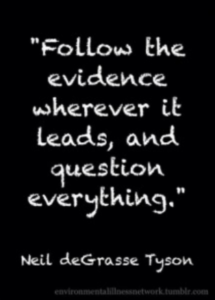7.6: Evaluating Information Reading
- Page ID
- 86809
\( \newcommand{\vecs}[1]{\overset { \scriptstyle \rightharpoonup} {\mathbf{#1}} } \) \( \newcommand{\vecd}[1]{\overset{-\!-\!\rightharpoonup}{\vphantom{a}\smash {#1}}} \)\(\newcommand{\id}{\mathrm{id}}\) \( \newcommand{\Span}{\mathrm{span}}\) \( \newcommand{\kernel}{\mathrm{null}\,}\) \( \newcommand{\range}{\mathrm{range}\,}\) \( \newcommand{\RealPart}{\mathrm{Re}}\) \( \newcommand{\ImaginaryPart}{\mathrm{Im}}\) \( \newcommand{\Argument}{\mathrm{Arg}}\) \( \newcommand{\norm}[1]{\| #1 \|}\) \( \newcommand{\inner}[2]{\langle #1, #2 \rangle}\) \( \newcommand{\Span}{\mathrm{span}}\) \(\newcommand{\id}{\mathrm{id}}\) \( \newcommand{\Span}{\mathrm{span}}\) \( \newcommand{\kernel}{\mathrm{null}\,}\) \( \newcommand{\range}{\mathrm{range}\,}\) \( \newcommand{\RealPart}{\mathrm{Re}}\) \( \newcommand{\ImaginaryPart}{\mathrm{Im}}\) \( \newcommand{\Argument}{\mathrm{Arg}}\) \( \newcommand{\norm}[1]{\| #1 \|}\) \( \newcommand{\inner}[2]{\langle #1, #2 \rangle}\) \( \newcommand{\Span}{\mathrm{span}}\)\(\newcommand{\AA}{\unicode[.8,0]{x212B}}\)
Highlights from Information Strategies for Communicators, Lesson 10: Research Skill: Evaluating Information

- The most challenging work in the information strategy process is often the evaluation of the
information you’ve gathered. - You apply your information evaluation skills as you move through the information strategy. Critical thinking, evidence-based analysis, and healthy skepticism [ ] are the tools of the skilled information evaluator.
- We live in an information-inundated world. Making sense of facts, opinions, assertions, claims, and appeals has become such a challenge that educators from preschool through higher education now recognize the importance of teaching critical thinking skills.
- When evaluating the information found via the Internet there are some foundational ideas that need to be remembered.
- The Internet did not invent misinformation or disinformation
- The Internet did not create rumor mongering and propaganda
- The Internet is not responsible for [faulty] data and [misleading] statistics
[Misinformation has] been around forever. The Internet is just a new distribution outlet. The Internet does make it possible for misinformation, disinformation, rumor mongering, [faulty] data and [misleading] statistics to be distributed more quickly and widely than in the past. It is incumbent on you, as the [researcher], develop ways to detect and avoid these information traps.
- If you ask, and answer, the following three questions when you go to any website, you should be able to avoid misusing or misunderstanding the information you find:
- Who is sharing this information?
- Why are they sharing it?
- How do they know what they claim to know

“Neil deGrasse Tyson Question Everything” Environmental Illness Network: CC BY-NC-ND 2.0
CC licensed content, Shared previously
- Lesson 10: Research skill: Evaluating information. Authored by: Hansen, K. A., & Paul, N.. Located at: http://open.lib.umn.edu/infostrategies/part/lesson-10-research-skill-evaluating-information/. License: CC BY: Attribution

